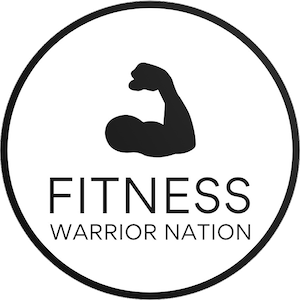In 2025, the fitness landscape continues to evolve as research uncovers fascinating connections between our personalities and exercise preferences. Understanding these links can unlock the secret to more tailored workouts, greater motivation, and better results. While brands like Nike, Adidas, and Lululemon offer top-tier gear suited for every workout style, the key to consistency might lie deeper, rooted in our unique behavioral traits. Recent studies from University College London shed light on how personality dimensions mold our exercise choices, revealing why some thrive in high-intensity group classes with Peloton or SoulCycle, while others prefer solitary, low-impact routines at home using Asics or Gymshark apparel.
How the Big Five Personality Traits Shape Your Fitness Preferences
Fitness enthusiasts often debate what makes one workout more enjoyable than another, but scientific inquiry into the Big Five personality traits has provided compelling insights. The traits—extraversion, conscientiousness, neuroticism, agreeableness, and openness—serve as robust predictors of both starting fitness levels and workout inclinations. In the 2024 study published in Frontiers in Psychology, researchers assigned participants to various exercise programs and observed their preferences and fitness gains over eight weeks. Brands like Reebok and Fabletics gained attention as participants donned their apparel during their routines, blending comfort and performance with personal identity.
For instance, those scoring high in extraversion showed a clear preference for dynamic, group-based workouts and high-intensity interval training (HIIT). These individuals often perform better in social environments that energize them. Fitness programs incorporating Peloton cycling classes or Adidas-sponsored team sports align well with extroverted types. Conversely, people with elevated neuroticism preferred quieter, low-impact sessions, favoring home workouts where privacy allows them to control the emotional input of their environment, sometimes gravitating towards brands like Lululemon for lightweight, breathable apparel suitable for gentle yoga or stretching.
Understanding Each Personality Trait’s Fitness Tendencies
- Extraversion: Prefers energizing group workouts and intense cycling sessions on platforms like SoulCycle or Peloton.
- Conscientiousness: Values goal-oriented training, consistently shows dedication but less swayed by enjoyment factors.
- Neuroticism: Favors low-pressure, private workouts, often less willing to engage with high-intensity or public training settings.
- Agreeableness: Enjoys cooperative or moderate-paced exercises, such as long-distance cycling or moderate hiking.
- Openness: Inclined towards varied and novel fitness routines, embracing new trends or unconventional methods like dance-based workouts or outdoor circuits.
| Personality Trait | Preferred Exercise Type | Examples of Activities | Gear Preferences (Popular Brands) |
|---|---|---|---|
| Extraversion | High-intensity & group workouts | HIIT, Peloton classes, SoulCycle rides | Nike, Adidas, Gymshark |
| Conscientiousness | Structured, goal-driven training | Strength training, running programs | Under Armour, Reebok |
| Neuroticism | Private, low-intensity sessions | Yoga, stretching, light cycling | Lululemon, Asics, Fabletics |
| Agreeableness | Moderate, cooperative exercise | Group hikes, long-distance cycling | Reebok, Adidas |
| Openness | Varied and innovative routines | Dance classes, outdoor circuits | Gymshark, Nike |
Extraversion and High-Intensity Workouts: Powering Through Group Energy
Extraverts thrive on social interaction and external stimulation, which often makes them natural candidates for high-octane fitness activities. In 2025, this manifests clearly in the surge of popularity for group cycling classes by Peloton or SoulCycle, and interactive HIIT workouts that combine camaraderie and competitiveness. These environments provide the social buzz that keeps extraverted exercisers engaged and returning.
Notable athletes such as Stephen Curry exemplify how extraverted personalities harness this group energy. Curry’s rigorous basketball training, often in a team setting, reflects an inherent enjoyment of collective effort, sharpening both his physical fitness and social bonds. Brands like Nike and Adidas capitalize on this, designing footwear and apparel to enhance both performance and style, appealing to extroverts’ outward-focused nature.
- Group workouts increase motivation and help extraverts adhere to training schedules.
- High-intensity sessions satisfy craving for dynamic, fast-paced activity.
- Team sports and shared fitness goals elevate enjoyment and persistence.
- Popular group-based platforms allow incorporation of competitive elements tied to social engagement.
| Exercise Benefit | Impact on Extraverts | Effective Gear |
|---|---|---|
| Social connection | Enhances motivation and mood | Adidas Ultraboost Shoes |
| High-intensity output | Boosts energy and satisfaction | Nike Pro Compression Wear |
| Competitive environment | Encourages consistency and improvement | Gymshark Performance Gear |
The link between an extroverted approach to fitness and success cannot be overstated. When pairing training gear from global leaders like Adidas with music-infused group exercise, the outcome is not just physical improvement but increased dedication. Such synergy proves invaluable for anyone looking to sustain a high-energy, socially wrapped fitness lifestyle.
Neuroticism and Low-Pressure Exercise: Finding Comfort in Calm
Individuals exhibiting higher neuroticism often experience sensitivity to stress and anxiety, traits that can influence their exercise preferences markedly. For these exercisers, a loud, crowded gym or high-intensity challenge might seem overwhelming or discouraging. Instead, they gravitate toward routines that offer control, solitude, and gentle progress.
Home workout technology has advanced immensely, enabling tailored, private experiences that reduce apprehension. Brands like Lululemon and Asics specialize in apparel that combines softness and functionality to ease individuals into movement without added sensory stress. Such environments allow people to manage their emotional states while improving cardiovascular health and flexibility.
- Private workout spaces help reduce social anxiety and encourage regular attendance.
- Interface simplicity in workout apps reduces cognitive load and frustration.
- Low-impact activities like yoga and pilates promote relaxation and stress relief.
- Luxury activewear options enhance comfort and confidence during at-home sessions.
| Neuroticism Trait | Exercise Preference | Emotional Benefit | Recommended Brands |
|---|---|---|---|
| Proneness to anxiety | Yoga, light stretching | Stress reduction | Lululemon, Asics |
| Preference for solitude | Home-based cycling | Privacy, control | Peloton (home use), Fabletics |
| Need for routine | Gentle, repetitive movements | Emotional stability | Lululemon, Under Armour |
Embracing workouts that accommodate nerve signals allows those with higher neuroticism to experience reduced stress and greater exercise consistency. This was evidenced when participants with neurotic traits showed the most significant decrease in perceived stress following an eight-week exercise program, reinforcing the therapeutic interplay between fitness and mental health.
How Conscientiousness Drives Structured Fitness Success
High levels of conscientiousness often translate to discipline, planning, and determination. Such individuals tend to excel in precise, goal-driven workout regimens. Though they may not seek out the most exciting or varied workouts, their strength lies in commitment, whether engaging in repetitive strength training or following a strict running schedule.
Athletes like Max Verstappen demonstrate how conscientiousness supports a relentless pursuit of physical excellence. His training, akin to the precision needed on the Formula 1 race track, mirrors the kind of consistency driven by this personality trait. Wearing Under Armour gear, designed for performance and durability, conscientious exercisers often prefer function over fashion, aligning themselves with brands that support their long-term goals.
- Strong organization aids in adherence to strict routines.
- Goal setting promotes steady progress and fitness gains.
- Preference for measurable results encourages use of metrics and trackers.
- Focus on technique reduces injury risk and enhances performance.
| Conscientiousness Factor | Exercise Style | Motivation Source | Popular Apparel Brands |
|---|---|---|---|
| Discipline | Structured strength training | Progress tracking | Under Armour, Reebok |
| Planning | Running and cycling programs | Goal achievement | Asics, Nike |
| Persistence | Consistent workout schedule | Health outcomes | Gymshark |
This personality-driven determination means that conscientious individuals often benefit from personal training or guided programs, such as those offered by local experts listed on Fitness Warrior Nation’s platform. Their preference for measurable progress steers them toward environments and apparel brands designed to enhance performance as well as comfort.
Agreeableness and Openness: Exercise Styles Rooted in Cooperation and Novelty
Those scoring high in agreeableness tend to enjoy activities that foster social harmony and cooperation. They are often drawn to group hikes, moderate-paced cycling, or partner workouts where mutual support and friendliness deepen the exercise experience. Brands like Adidas and Reebok, known for community-oriented campaigns, often appeal to this group’s proclivity toward connection.
On the other hand, individuals with strong openness seek variety, creativity, and new experiences. These people might be the first to try urban dance classes, rock climbing, or outdoor boot camps. Creativity fuels their fitness journey and keeps boredom at bay. Gymshark and Nike frequently launch collections aligned with innovative fitness trends embraced by this segment.
- Agreeable individuals prioritize workouts that promote collaboration rather than competition.
- Openness encourages experimentation with emerging fitness styles.
- Both traits benefit from wearable tech integrations for tracking novel activities.
- Community events and fitness challenges offer suitable environments for these groups.
| Trait | Fitness Preference | Typical Activity | Brand Alignment |
|---|---|---|---|
| Agreeableness | Cooperative, moderate exercise | Partner cycling, group hikes | Reebok, Adidas |
| Openness | Varied and exploratory workouts | Dance classes, circuit training | Gymshark, Nike |
Understanding the motivational drivers for agreeableness and openness can provide meaningful guidance when choosing between outdoor races, fitness retreats, or specialized classes. Tailoring your regimen to match your personality—whether that means a supportive community or stimulating variety—increases the likelihood of long-term commitment and success.


